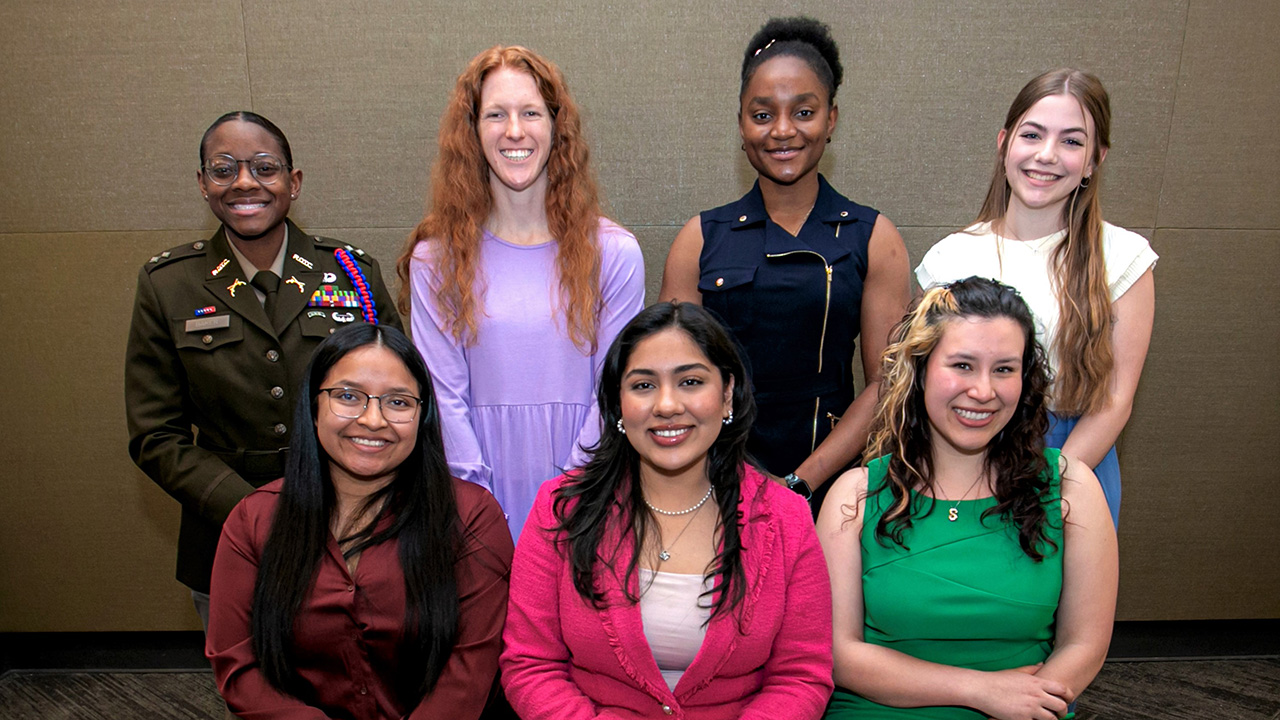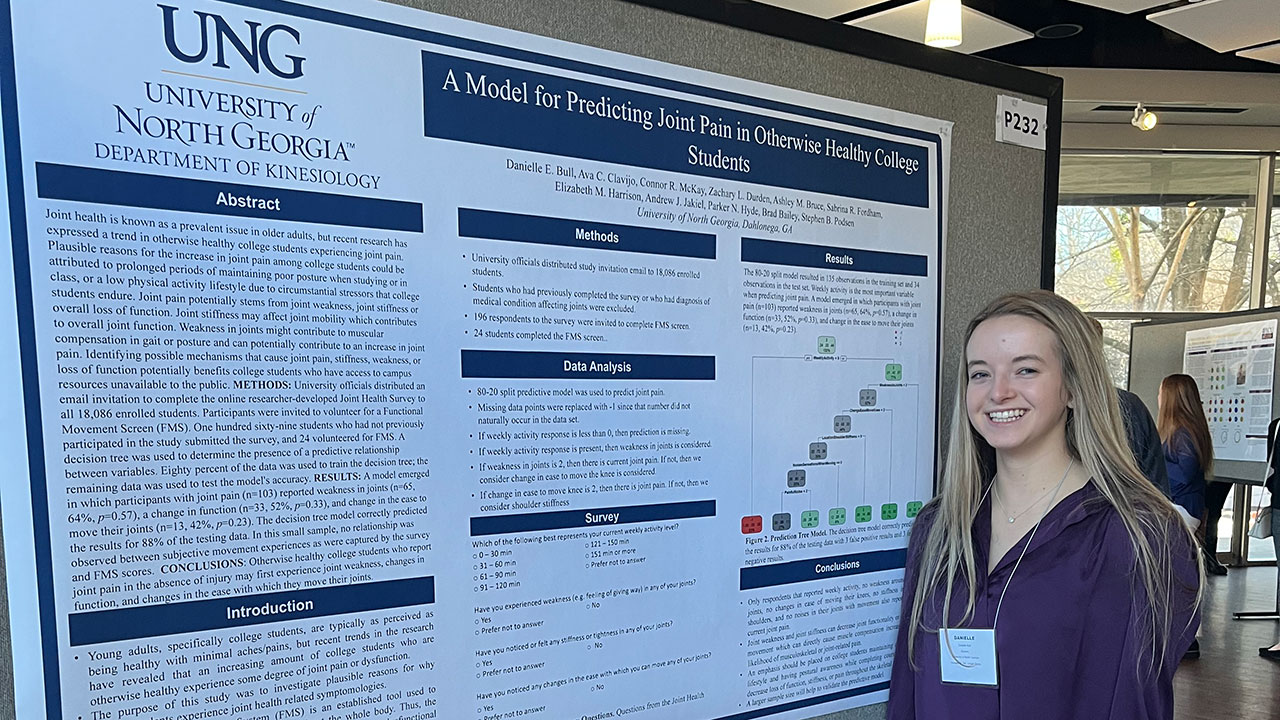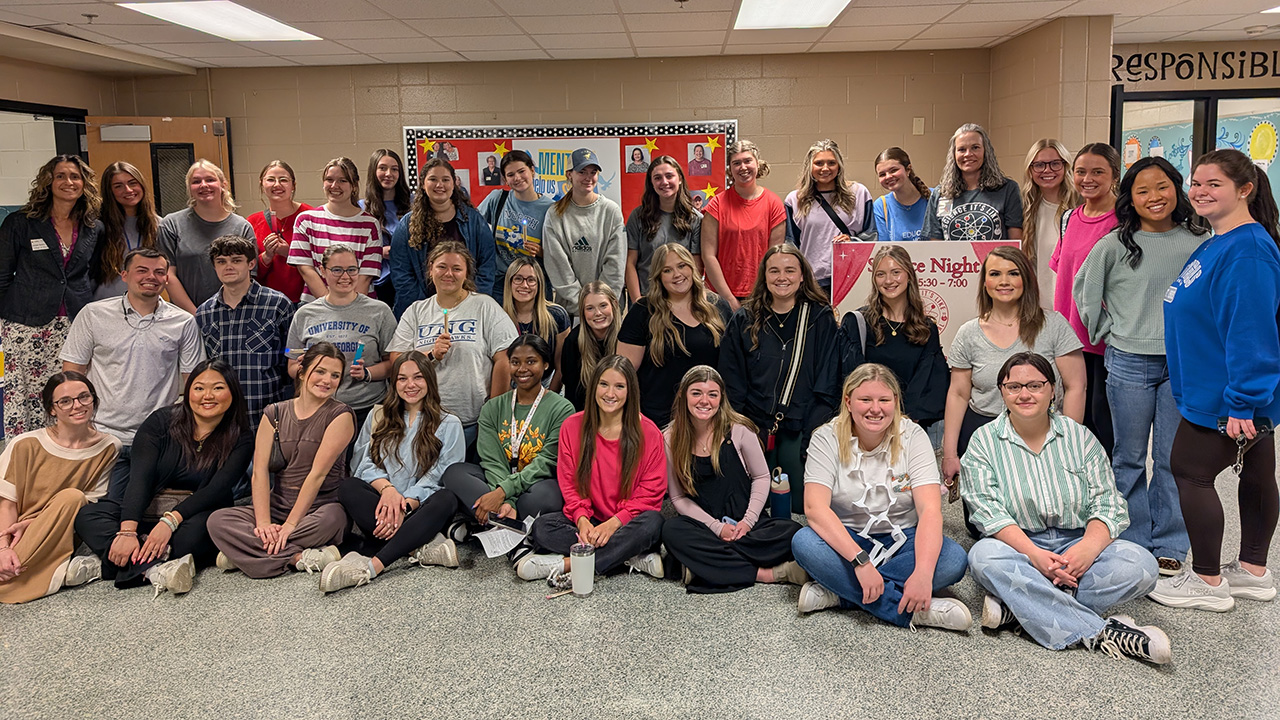Kinesiology department makes move to Convocation Center

Article By: Clark Leonard
The Department of Kinesiology in the College of Education at the University of North Georgia (UNG) has moved into the academic spaces in the new Convocation Center. This fall marks the beginning of its first full academic year of classes in the new location after the first classes were offered there this summer.
The new program site offers state-of-the-art human performance and athletic training labs that will facilitate the clinical preparation of exercise science and athletic training students.
"This whole facility is a selling point," Dr. Thomas Temples, an associate professor of exercise science who came to UNG 25 years ago, said of the building that opened on the southwest side of UNG's Dahlonega Campus in spring 2018. The kinesiology department was previously housed in Memorial Hall classrooms adjacent to the gymnasium.
Many of the students majoring in exercise science and athletic training will ultimately advance to graduate programs including occupational and physical therapy. Temples said the exercise science concentration produces strong candidates for these graduate programs, particularly clinical programs.
Dr. Gregory Palevo, assistant professor of exercise science, said the new underwater weighing tank in the human performance lab "makes a big difference in doing body composition testing, including fat mass, muscle mass and body fat percentage." The new setup is a step up for students. Instead of being the ones measured, they can now administer body composition testing. Access to these experiences allows students to actively translate learning into professional practice.
"That's what they're here for," Palevo said.
Temples noted that the strength and conditioning lab will be useful for physical therapy coursework, such as learning how to prescribe resistive programs and working certain muscles to build strength, endurance, and range of motion.
Dr. Susan Ayres, dean of the College of Education, said the kinesiology department's move to the Convocation Center gives "the ability to better prepare students in our rapidly growing undergraduate and graduate clinical professional programs."
Ayres and Palevo pointed to the greatly increased amount of instructional space in the new building as another big perk.
"We have potential now to really grow our program," Palevo said.
Another beneficiary will be the Master of Science in athletic training program, which will take advantage of 12 athletic training tables.
The labs in the Convocation Center allow for versatility, where professors can teach and then seamlessly move into the lab portion of a class with the equipment already in place.
Dr. Gary Preston, head of the kinesiology department, said the space in the Convocation Center will be used for faculty and student research including a national consortium study of concussions on student-athletes and the Corps of Cadets. Dr. Jessica Miles, associate professor of athletic training, is the principal investigator of the grant from the NCAA and Department of Defense, which has brought $400,000 to UNG since 2016 and facilitated testing for 1,000 students.



